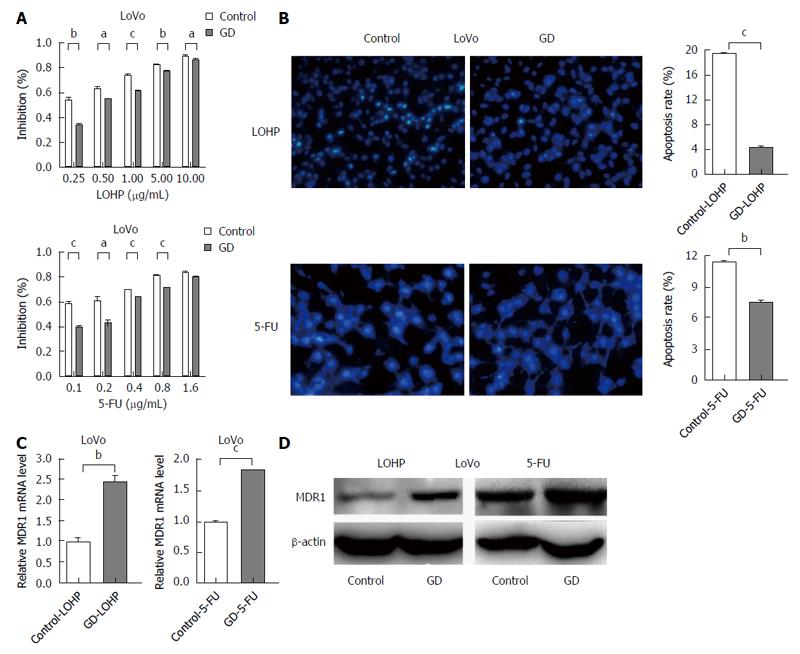Copyright
©The Author(s) 2016.
World J Gastroenterol. Jul 21, 2016; 22(27): 6235-6245
Published online Jul 21, 2016. doi: 10.3748/wjg.v22.i27.6235
Published online Jul 21, 2016. doi: 10.3748/wjg.v22.i27.6235
Figure 1 Glucose deprivation promotes drug resistance of colorectal cancer cells.
A: GD decreased drug susceptibility to CRC cells. LoVo cells were treated with the indicated doses of the different drugs for 48 h under GD or normal culture condition. The in vitro drug sensitivity was tested by the CCK-8 assay; B: GD inhibited LOHP- and 5-FU-induced apoptosis. LoVo cells were treated with 0.1 μg/mL LOHP or 0.05 μg/mL 5-FU for 48 h. Hoechst 33258 nuclear staining and Annexin V/7-AAD staining assays were performed to detect apoptosis. C and D: GD promoted the expression of resistance gene MDR1. The mRNA and protein levels of MDR1 were examined by qRT-PCR and Western blot, respectively. aP < 0.05, bP < 0.01,cP < 0.001, control vs GD. GD: Glucose deprivation; CRC: Colorectal cancer.
- Citation: Hu YL, Yin Y, Liu HY, Feng YY, Bian ZH, Zhou LY, Zhang JW, Fei BJ, Wang YG, Huang ZH. Glucose deprivation induces chemoresistance in colorectal cancer cells by increasing ATF4 expression. World J Gastroenterol 2016; 22(27): 6235-6245
- URL: https://www.wjgnet.com/1007-9327/full/v22/i27/6235.htm
- DOI: https://dx.doi.org/10.3748/wjg.v22.i27.6235









